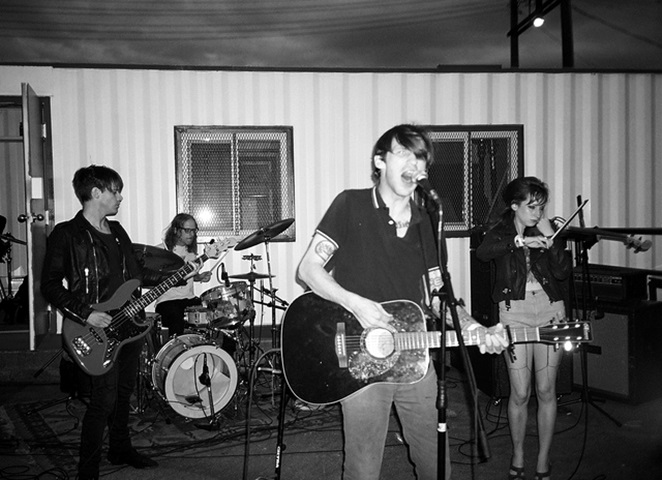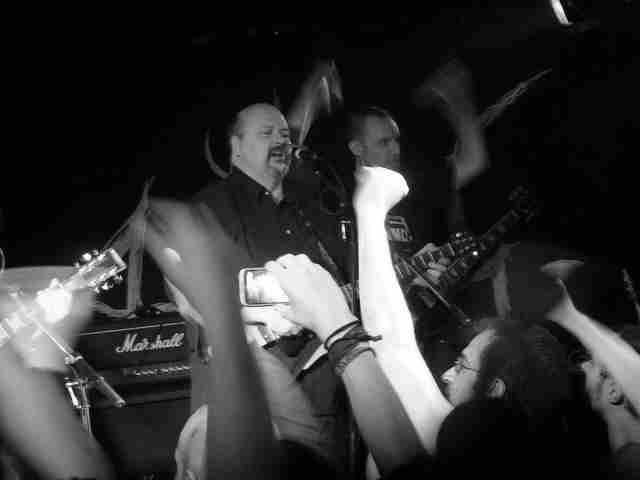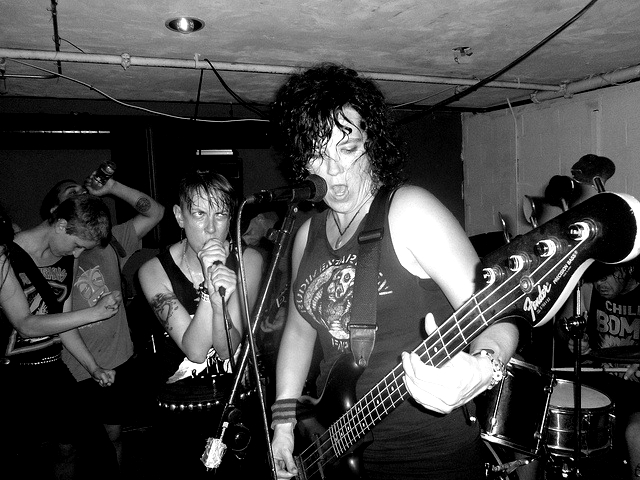2012 was a damn good year for music in general, and for new musical discoveries, personally. I found my own tastes wandering between the seemingly-unrelated-yet-actually-interconnected worlds of hardcore punk, deathrock, postpunk, and neofolk. My “top 10” for 2012 reflects this. (More…)
Author: Oliver SheppardOliver Sheppard is a DJ, writer, sometime-musician, and otherwise professional luftmensch currently in Texas. He ran Cultpunk.com, the radio show Radio Schizo, and currently DJs the "No Doves Fly Here" postpunk event night in Austin. His work has appeared on Z Magazine's website and in lots of anarchist/socialist magazines.
Tony Wakeford has been making music since 1977, starting with political punks Crisis. Wakeford and ex-Crisis members started the seminal postpunk/neofolk Death in June. Afterwards came his current project, Sol Invictus. Wakeford’s career has not been without controversy. He recently discussed his legacy with Souciant. (More…)
Of the Wand & the Moon are one of the big guns of contemporary neofolk. Arriving a generation after founders like Death in June, Sol Invictus, and Current 93, Of the Wand & the Moon have breathed new life into this beautiful and perennially misunderstood genre. OTWATM’s 2011 The Lone Descent LP is widely regarded as a neofolk masterpiece. (More…)
In “The Operable Man,” German philosopher Peter Sloterdijk stated, “It is neither our failure nor our accomplishment that we live in a time in which the apocalypse of man is an everyday occurrence.” The music of Killing Joke is the sonic corollary to this existential predicament. Let me show you how. (More…)
Hard-coded into punk’s DNA is a contradiction worthy of Hegel: A desire to impact the mainstream combined with a disavowal of anything that achieves success. It’s a perfect formula for self-destruction. This core tension has prevented punk from achieving its highest ideals, and has caused the movement to die out several times over. (More…)
“G-Beat” is a genre tag I first started seeing last year, used by the late Kenneth Duffy (AKA Kenn Kroosaficks) to describe Deathcharge’s 2011 LP, Love Was Born to an Early Death. The hotly anticipated full-length represented a transition from D-beat hardcore to hard-charged gothic rock, emblematic of a larger sea change in punk. What exactly is G-beat, though? (More…)
The previous decade – let’s call them the noughties – showed the punk scene regrouping after the 1990s. Amid the flood of great new music, many full-lengths were inevitably overlooked or were lost in the chaos. Other releases got momentary attention, but were quickly forgotten. Here are some of the best LPs from the previous decade that are worth revisiting. (More…)
Warsaw changed their name to Joy Division to avoid conflict with the band Warsaw Pakt. Coincidentally, the name change also served to mark the break between Joy Division’s punk phase and their later, better-known postpunk era. (More…)
The very first issue of SPIN Magazine in 1985 featured a full color feature on deathrock. Titled “Is There Life After Deathrock?” the article’s tagline warns, “If you thought punk was hardcore, you’re in for a shock.” Almost 30 years later, punk bands have rediscovered the music SPIN warned about. (More…)
It took Michel Foucault to reinsert Nietzsche into leftist analyses of power. Although the German philosopher’s influence has been felt among Marxist, anarchist, and anti-market thinkers, his influence is rarely accorded its due. Like pornography, Nietzsche is often hustled in through the backdoor, and with a vague sense of shame. (More…)
In the 1970s, older folks regarded punk as untalented, amateur, and above all, noise. Only a few years after its arrival, British artists affiliated with the punk and postpunk scenes co-opted the “noise” designation, turned it into a badge of pride, and pushed the sonic envelope further than many believed possible. (More…)
Record labels are a funny thing. Just like bands, they can be objects of cultish devotion. Factory, Dischord, 4AD, Rough Trade, and others all have fans who look to a label’s branding as an indication of a band’s style, ethics, and quality. This goes back to the days of Sun Records in the 1950s. Crass Records‘ reputation as a purist punk label is due for reexamination. (More…)











